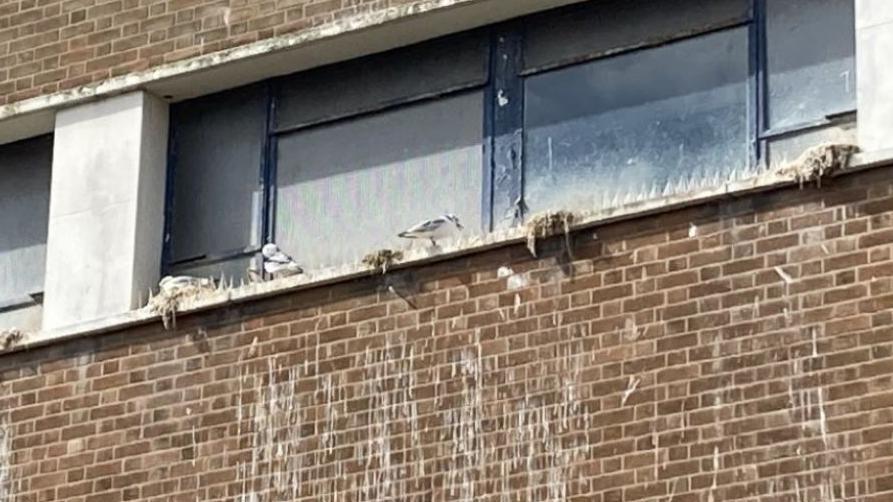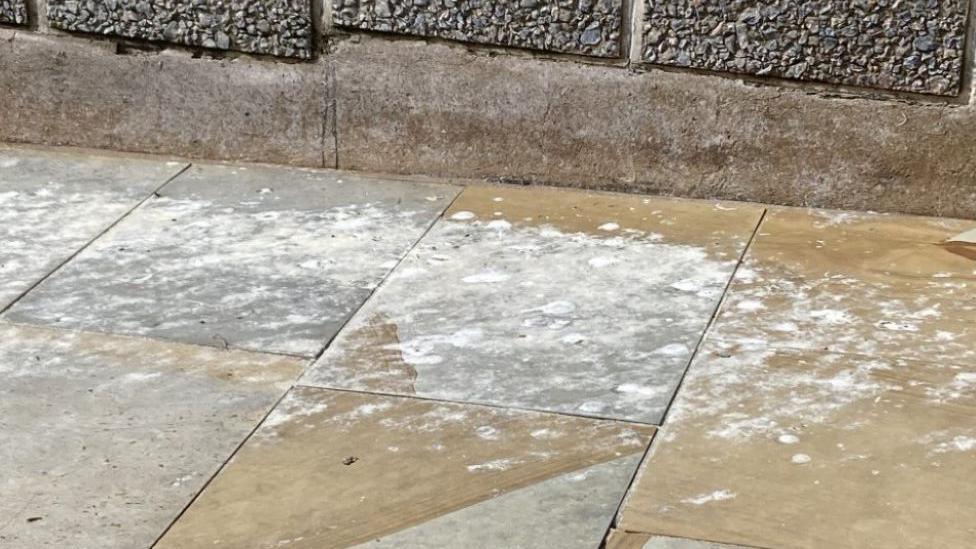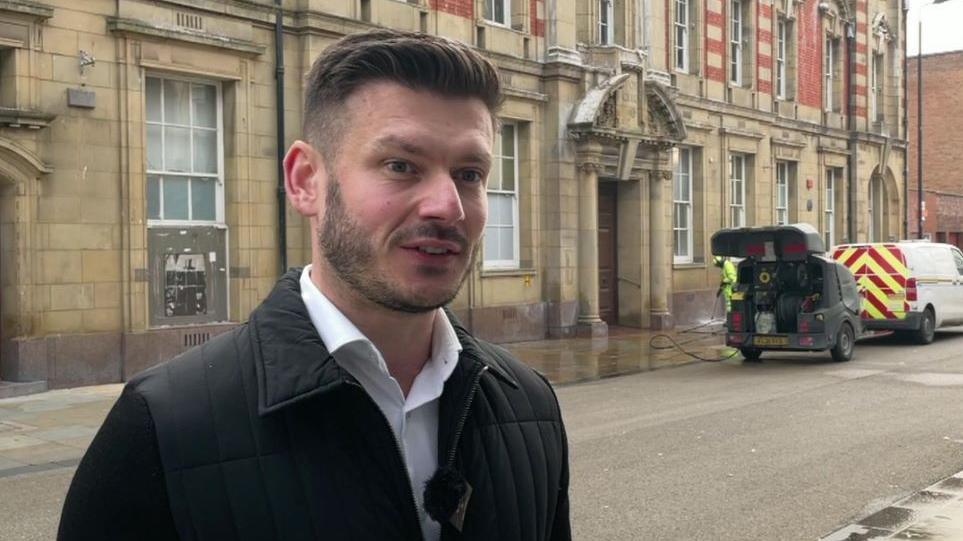Visitors warned over feeding seagulls after attacks

Buildings in Scarborough have been blighted by unsightly bird droppings
- Published
A council is reviewing how seagulls are impacting a coastal town in North Yorkshire following a spate of attacks and persistent droppings.
Visitors and residents in Scarborough have been asked to not feed seagulls and pigeons due to the unsightly poo and off-putting odour which is blighting various streets and buildings.
North Yorkshire Council has said its cleaning teams have been targeting a number of hotspots in the town to address the problem, but called on the public to help as well.
Councillor Keane Duncan said the mess the seagulls create was “a major problem”.
“We have to use extra strength detergent when cleaning the streets and buildings," he said.
“We have also had a number of scary incidents, including more than 60 reports of gull mugging attacks of people and pets over the last two years, so we’re trying to discourage that by saying, do not feed the birds, do not drop litter,
“Clearly fried fish, chips, ice cream are not part of a seagull’s diet, so we want to make sure we are discouraging interactions between the humans and birds.”
Mark Neumegann, who has been hired to help with cleaning buildings, said to avoid the smell he would “try and cover up completely”.

Many pavements around Scarborough are also covered in bird droppings
He added: “I’ve got loads of layers on, goggles all the time, and it still feels like you’re breathing it.”
Meanwhile, Ashton Bunn, who has also been paid to clear the droppings, said: "It seems like a constant problem as no sooner have we got it cleaned, it is back again.
“There’s nothing you can really do as they have tried to put barbed wire up on the windowsills but it doesn’t seem to be working.
“It needs addressing but we are in a seaside town so you have to accept that this is part of it.”

Councillor Keane Duncan explained how the street cleaners have to use "extra strength detergent"
Natalie LeBrun, from the RSPB, said birds, such as seagulls, have been moving inland into urban towns because there is more food available to them.
She said: "I think it is the challenges they face essentially, as they are being pushed out of their natural habitat due to loss of habitat, offshore windfarms, overfishing, climate change – all the typical reasons really.
“It is one of the most important things we can do, local residents and visitors alike, just do not feed the birds, as if you feed them, they will come as they are opportunist.”
Listen to highlights from North Yorkshire on BBC Sounds, catch up with the latest episode of Look North or tell us a story you think we should be covering here, external.